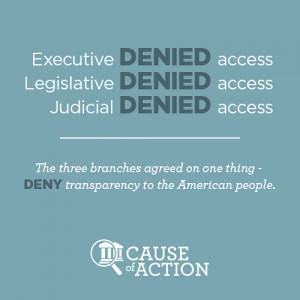For Immediate Release
Contact:
Whitney Neal, Digital Communications & PR Coordinator
Jon Melchi, Director of Government Affairs
HARDI Announces Settlement with DOE in Regional Efficiency Standards Lawsuit
Columbus, Ohio– Heating, Air-Conditioning and Refrigeration Distributors International (HARDI) announced today that it reached a settlement in the long-running lawsuit regarding Regional Efficiency Standards for residential gas furnaces and central air-conditioners which were finalized by the Department of Energy (DOE) in October 2011. Represented by government accountability group Cause of Action, HARDI agreed to a settlement, which would remand the efficiency standards for gas furnaces, forcing the DOE to restart the process for assessing efficiency standards and to do so in a more transparent manner.
The settlement, which will take effect upon judicial approval, signifies a victory for heating, ventilation, air-conditioning, and refrigeration distributors, who intervened in the lawsuit challenging the standards, citing DOE’s abuse of process in utilizing a regulatory procedure which ignored the input of distributors and other stakeholders.
Executive Director Dan Epstein of Cause of Action said:
“Due process in agency rulemaking exists to give all Americans a voice instead of merely relying upon the unelected elite. The DOE effectively overruled the voices of American consumers and small businesses concerning energy efficiency standards, removing all accountability, which is why Cause of Action took up this case. This settlement is a victory for thousands of businesses, consumers, and manufacturers as the DOE has agreed to a standard of transparency and accountability when creating new rules going forward.”
HARDI President Royce Henderson (Charles D. Jones Company) stated:
“Our goal from the start has been twofold. The first was to provide relief to our members who faced damages as a result of DOE’s actions. The second has been to fix the process, so this will never happen again. We believe this settlement accomplishes both goals to the greatest extent possible.”
Other terms of the settlement:
- The increase and regionalization in the standards for central air-conditioners will remain, but the DOE has allowed for a “sell-through” period of 18-months and agreed to not-penalize HVACR distributors as part of the enforcement of the Regional Standard.
- Additionally, the DOE has agreed to engage in a process to review the regulatory processes which established the regional efficiency standards.
The court document can be found here.
About HARDI:
Heating, Air-Conditioning and Refrigeration Distributors International (HARDI) represents more than 460 wholesale companies and 300 manufacturing associates as well as nearly 140 manufacturer representatives. HARDI members represent an estimated 85 percent of the dollar value of the HVACR products sold through distribution.
About Cause of Action:
Cause of Action a nonprofit, nonpartisan government accountability organization that investigates, exposes, and fights job-killing federal government regulations, waste, fraud, and cronyism. Cause of Action, uses investigative, legal, and communications tools to educate the public on how transparency and accountability protects taxpayer interests and economic opportunity. For more information, visit www.causeofaction.org.


